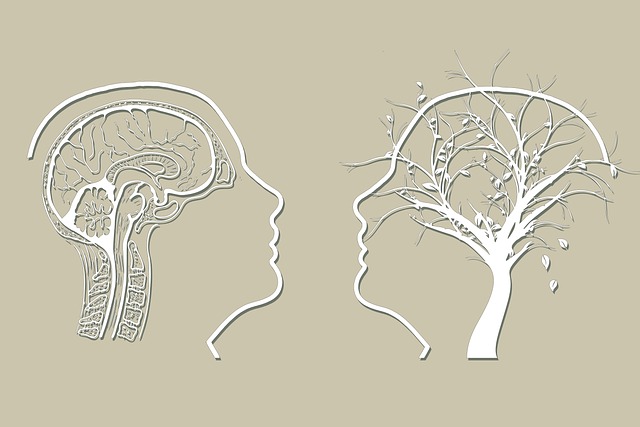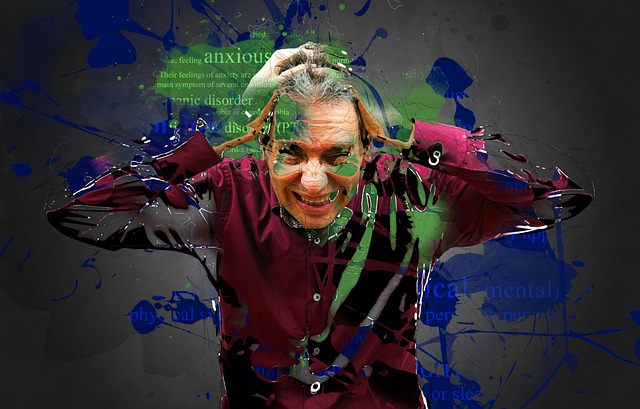Positive thinking is a powerful tool that transforms lives by unlocking potential, fostering mental wellness, and enhancing self-esteem. Through gratitude practices, mindful meditation, affirmations, and reflection, individuals cultivate optimism, resilience, and self-acceptance, enabling them to navigate challenges with enhanced coping mechanisms and improved life satisfaction. Incorporating these exercises into daily routines supports effective therapy for self-esteem, aligning with the growing emphasis on mental health education and cultural competency training, ultimately leading to better patient outcomes. Overcoming barriers like negative thought patterns and past traumas, along with culture competency training, empowers individuals to embrace a more positive life journey.
“Unleash your inner strength with positive thinking exercises – a powerful therapy for self-esteem. This comprehensive guide explores how mindset shifts can transform your life, from understanding the science behind positive thinking to practical strategies for daily application.
We’ll delve into the connection between positivity and self-worth, providing insights on navigating challenges that may hinder progress. By the end, you’ll be equipped with tools to enhance your self-esteem through simple yet effective rituals, ensuring a more optimistic and fulfilling journey.”
- Understanding Positive Thinking: Unlocking the Power of Mindset
- The Connection Between Positive Thinking and Self-Esteem
- Strategies for Incorporating Positive Thinking Exercises
- Practical Application: Daily Rituals for Cultivating Positivity
- Overcoming Challenges: Common Obstacles and How to Navigate Them
Understanding Positive Thinking: Unlocking the Power of Mindset

Positive thinking is a powerful tool that can transform one’s life by unlocking their true potential. It involves cultivating a mindset focused on optimism and gratitude, which has profound effects on mental wellness. When individuals embrace positive thinking, they create a shift in their perception, enabling them to navigate challenges with greater resilience. This simple yet effective exercise helps build self-esteem and reinforces the belief in one’s abilities.
In today’s fast-paced world, managing stress is crucial for maintaining balance. Positive thinking serves as a therapy for self-esteem issues, allowing individuals to reframe negative thoughts into constructive ones. By adopting this mindset, people can enhance their overall well-being and develop better coping mechanisms for stressful situations. It encourages resilience building, ensuring that setbacks become opportunities for growth rather than sources of despair.
The Connection Between Positive Thinking and Self-Esteem

Positive thinking exercises have been proven to significantly impact self-esteem development. By cultivating a mindset focused on optimism and gratitude, individuals can enhance their perception of themselves and their abilities. This shift in perspective encourages personal growth, fostering a sense of self-worth and confidence that transcends external validation.
Therapy for Self-Esteem often incorporates such exercises as a powerful tool for mood management and promoting mental wellness. Engaging in regular positive thinking practices can help individuals navigate challenges with resilience, improve their overall life satisfaction, and contribute to the public awareness campaigns development centered around mental health.
Strategies for Incorporating Positive Thinking Exercises

Incorporating positive thinking exercises into your daily routine can significantly enhance mental well-being and boost self-esteem. One effective strategy is to start with a gratitude practice, where individuals take a few moments each day to reflect on and appreciate the positive aspects of their lives. This simple act can shift focus from negativity to a more optimistic mindset. Keeping a gratitude journal or even just jotting down a few thoughts before bed can make this exercise effortless and impactful.
Additionally, compassion cultivation practices like mindful meditation can foster positive thinking. By training your mind to be more aware of thoughts and emotions without judgment, you develop a deeper sense of self-acceptance and kindness towards yourself. Combining these practices with self-care routines, such as regular physical activity, sufficient sleep, and healthy eating, further supports stress reduction methods. These holistic approaches create an environment conducive to positive thinking and ultimately contribute to improved therapy for self-esteem.
Practical Application: Daily Rituals for Cultivating Positivity

Incorporating positive thinking exercises into daily routines can significantly impact mental health and self-esteem therapy. It’s a practical way to cultivate resilience and optimism, especially for individuals seeking personal growth or dealing with low self-worth. Starting the day with affirmations, reflecting on achievements, and practicing gratitude are simple yet powerful rituals that can be integrated into any routine. These practices encourage a mindset shift, helping individuals challenge negative thought patterns and foster a more positive outlook.
Healthcare providers can also benefit from this approach, as it aligns with the growing emphasis on mental health education programs design and cultural competency training. By adopting these daily practices, professionals can enhance their well-being and better support patients in building confidence and navigating life’s challenges. This holistic method of care has been shown to improve patient outcomes and create a more positive therapeutic environment.
Overcoming Challenges: Common Obstacles and How to Navigate Them

Overcoming challenges is an integral part of cultivating a positive mindset and engaging in therapy for self-esteem. Many individuals face obstacles that hinder their progress, but with awareness and strategic navigation, these hurdles can become stepping stones to growth. Common challenges include negative thought patterns, past traumas, or cultural barriers in mental healthcare practice. To address these, it’s crucial to develop emotional intelligence—a skill that enables individuals to understand and manage their own emotions while recognizing and responding appropriately to others’ feelings. This fosters cultural sensitivity in mental healthcare practice, enhancing the therapeutic relationship.
Healthcare provider cultural competency training plays a vital role here by equipping professionals with the knowledge and skills to work effectively across diverse cultural settings. By embracing these strategies, individuals can navigate challenges with resilience, fostering a more positive and fulfilling life journey.
Implementing positive thinking exercises can significantly enhance self-esteem, transforming one’s perspective and overall well-being. By understanding the power of mindset and navigating common challenges, individuals can unlock their potential through daily rituals that cultivate positivity. Remember that consistent practice is key; with dedication, these strategies can revolutionize one’s mental landscape, fostering a healthier and more optimistic outlook on life. In terms of therapy for self-esteem, positive thinking exercises provide an accessible and effective toolkit for personal growth.














